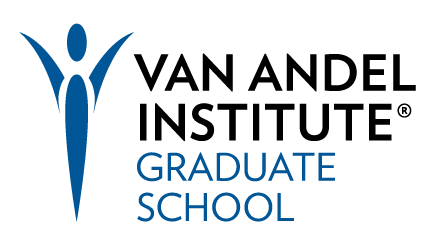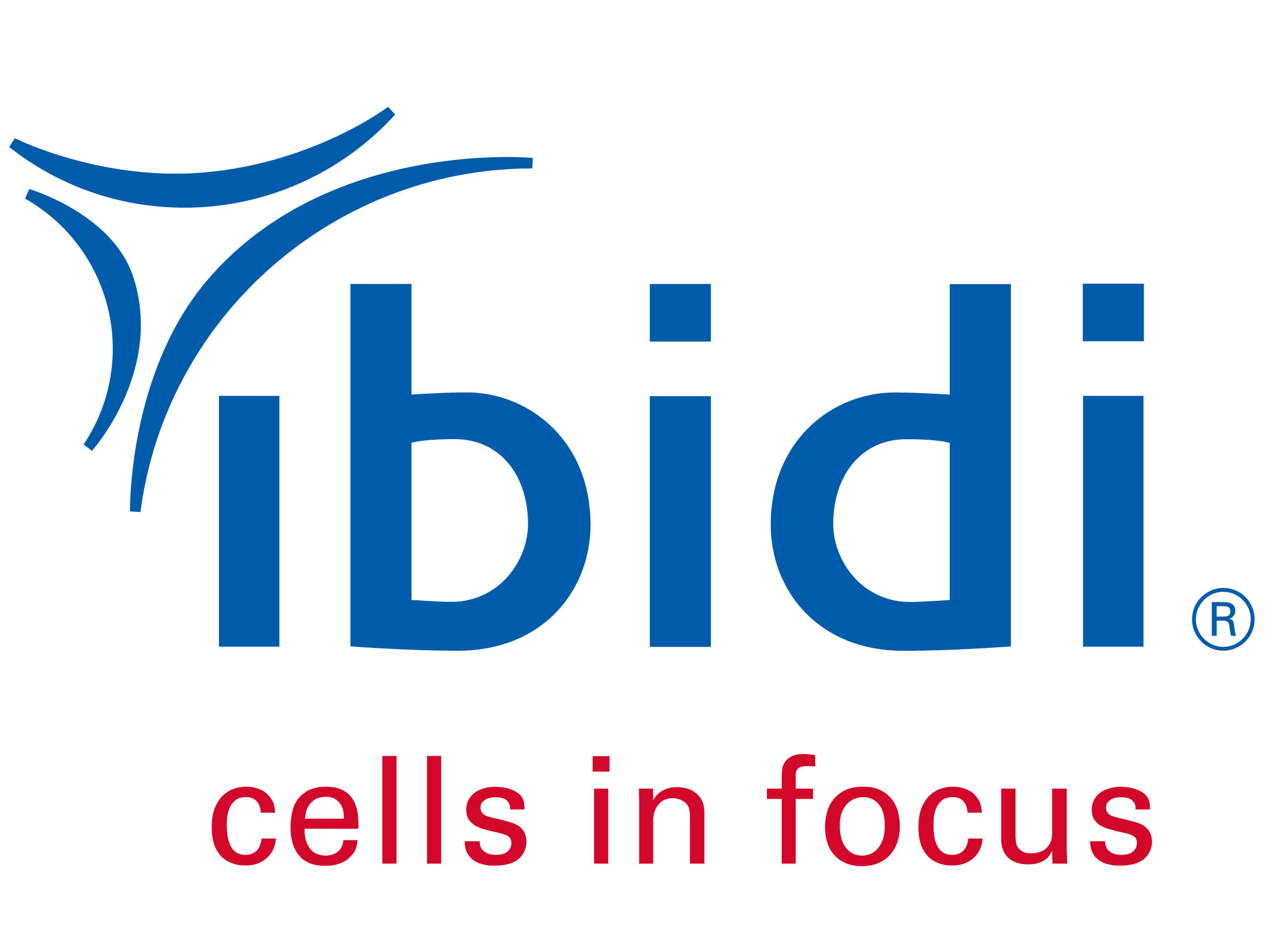2023 Bioinformatics Workshop
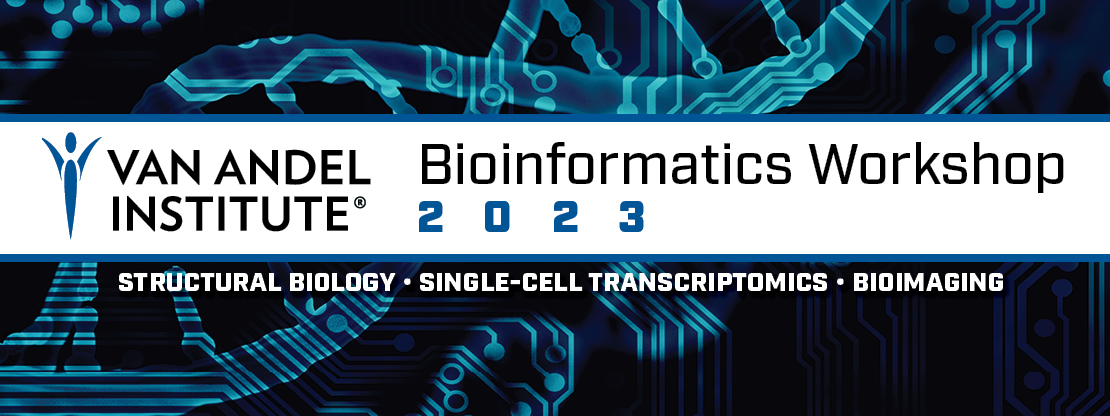
Bioinformatics is revolutionizing fields across biology. Recent technological advances provide powerful tools that allow scientists to analyze transcriptomic data, predict protein structures and process microscopy images.
Join us for a one-day hybrid workshop that will train molecular biologists with all levels of experience in novel applied bioinformatics methods. The Van Andel Institute Bioinformatics Workshop will include distinguished speakers and instructors that will highlight advances and provide hands-on training in the use of bioinformatics for transcriptomic data analysis, protein structure prediction and microscopy image analysis.
Cost:
- Trainees – $50
- Non-trainees – $100
Workshop Descriptions
Protein Structure Prediction: Bioinformatics tools in predicting protein structures
Instructor: Xiang Feng, Ph.D.
This workshop session focuses on providing an introduction and hands-on experience for computational tools used for protein structure prediction, analysis and illustration, including AlphaFold, Rosetta, Pymol and ChimeraX.
Microscopy Data Analysis: Image processing with ImageJ/Fiji and automated workflows
Instructor: Edward L. Evans III, Ph.D.
This workshop will cover digital images, the ImageJ/Fiji ecosystem, image processing techniques and automating image processing workflows.
Transcriptomic Data Analysis: Introduction to the CZ CELLxGENE Discover Suite
Instructor: Maximilian Lombardo, M.Sc., M.A.
This workshop session will provide an overview of the open source and freely available CZ CELLxGENE Discover Suite (https://cellxgene.cziscience.com/), which includes a free-to-use online data portal and a set of UI based visualization that enable in depth exploration of single-cell data. CELLxGENE’s data portal hosts a growing corpus of more than 700 single-cell datasets comprising more than 38 million unique cells. These data are standardly curated and are available for free download using either the Portal UI or programmatically via our API. Visualization tools include our Explorer (suitable for exploring individual datasets) and Gene Expression (for exploring patterns in gene expression at the corpus level).
Thank you to our incredible 2023 sponsors!
Keynote Speakers
Senior Group Leader, Broad Institute
Dr. Beth Cimini is a Senior Group Leader, CZI Imaging Scientist and head of the Cimini Lab in the Imaging Platform at the Broad Institute in Cambridge, Mass. She obtained a Ph.D. in Biochemistry and Molecular Biology with Dr. Elizabeth Blackburn at UCSF, studying splicing variants of the telomere master scaffolding protein TIN2. This work honed her interests in image analysis, leading her to postdoctoral and staff scientist roles with Dr. Anne Carpenter’s lab at the Broad, leading a team collaborating with ~30 outside scientists per year on custom image analysis projects. The Cimini Lab focuses on bioimage analysis tool creation (Piximi) and maintenance (CellProfiler), as well as on applying open source tools to novel biological problems. She created and directs the Platform’s Postdoctoral Training Program in Bioimage Analysis, and also leads the Broad efforts towards community engagement and driving biological projects for the Center for Open Bioimage Analysis (COBA).
Assistant Professor, Department of Pharmacology, Northwestern University
Prof. Rocklin earned his Ph.D. in Biophysics at the University of California, San Francisco and then did postdoctoral research at the University of Washington’s Institute for Protein Design. He joined Northwestern’s Department of Pharmacology and Center for Synthetic Biology in 2019. His lab develops high-throughput experimental methods to understand protein biophysics and improve computational protein design. His lab is also a member of the international Rosetta Commons consortium for biomolecular modeling and design. In 2020, his lab was awarded an NIH New Innovator award to support their research into protein conformational dynamics.
Associate Professor, Department of Biostatistics
University of Michigan
Dr. Xiang Zhou is an associate professor in the Department of Biostatistics in the School of Public Health at the University of Michigan. He is also an assistant director at the University of Michigan Precision Health. He has been an associate professor since Sept. 2019. Dr. Zhou joined the department as an assistant professor in 2014 and became the John G. Searle Assistant Professor in the department in 2018-2019. Before joining the University of Michigan, he was a Williams H. Kruskal Instructor in the Department of Statistics at the University of Chicago in 2013-2014. He received an M.S. degree in statistics in 2009 (adviser: Prof. Scott Schmidler) and a Ph.D. degree in neurobiology in 2010 (adviser: Prof. Fan Wang), both from Duke University. He was a postdoctoral scholar working with Prof. Matthew Stephens at the University of Chicago during 2010-2013. Dr. Zhou’s current research focus is on developing statistical methods and computational tools for analyzing large-scale genetic and genomic studies.
Workshop Speakers
Postdoctoral Fellow, Laboratory for Optics and Computational Instrumentation (LOCI) & Morgridge Institute for Research
Dr. Edward L. Evans III is a postdoctoral fellow with Dr. Kevin Eliceiri at the Laboratory for Optics and Computational Instrumentation (LOCI) in Madison, Wisconsin. Edward obtained his Bachelor of Science degree in Cell and Molecular Biology from San Francisco State University in 2013, where he researched the evolution and phylogenetic relationships of avian blood parasites (e.g., malarias) and their hosts. After completing his undergraduate degree, he was accepted into the cancer biology graduate program at the University of Wisconsin-Madison. His research focused on the nature of Human Immunodeficiency Virus Type 1 (HIV-1) species-specific viral-host incompatibilities with Dr. Nathan Sherer. In Dr. Sherer’s lab, Edward developed skills in retrovirology, fixed cell microscopy and live cell video microscopy. To process the large quantities of image data being generated by his research, Edward began developing automated image processing pipelines. After completing his graduate studies with Dr. Sherer, Edward moved to Dr. Eliceiri’s group, where he joined the core ImageJ development team. There, Edward primarily focuses on PyImageJ (a python library for integrating ImageJ and Python), integrating machine learning frameworks with ImageJ and the development of automated image processing workflows with collaborators.
Senior Product Applications Scientist, Chan Zuckerberg Initiative
Max is currently a Senior Product Application Scientist on the CZ CELLxGENE team at the Chan Zuckerberg Initiative and works at the intersection of product, technology, and single cell. Prior to working at CZI, he was a computational biologist at Kallyope where he was an early contributor to the company’s platform for understanding gut and gut-brain biology to transform human health. Max obtained his M.Sc. and M.A. degrees in Computational Science and Biotechnology from the University of Amsterdam and Columbia University, respectively.
Research Scientist, Van Andel Institute
Dr. Xiang Feng earned his B.S in biotechnology from Fudan University and his Ph.D. in pharmacology from Baylor College of Medicine. His graduate work focused on the computational structural biology of membrane proteins. In 2017, he joined the lab of Dr. Huilin Li at Van Andel Institute to continue the study of protein structures with the cryo-EM method. He currently is a research scientist the Li Lab and his research interests include the function and molecular mechanism of protein complexes that are involved in DNA replication and electron bifurcating redox reactions.
Sessions will be presented virtually and in-person.
9:00 – 9:30 AM | Registration
9:30 – 9:45 AM | Welcome and Opening
9:45 – 11:15 AM | Keynote Speakers
Gabriel Rocklin, Ph.D.
Northwestern University
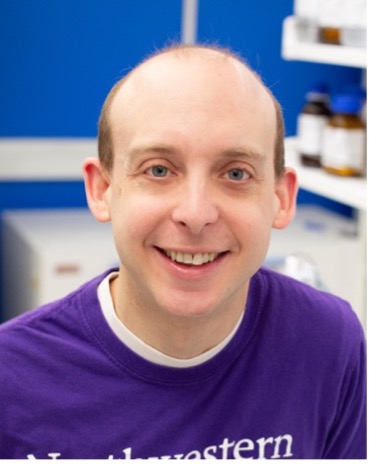
Mega-scale Experimental Analysis of Protein Folding Stability in Biology and Protein Design
Xiang Zhou, Ph.D.
University of Michigan
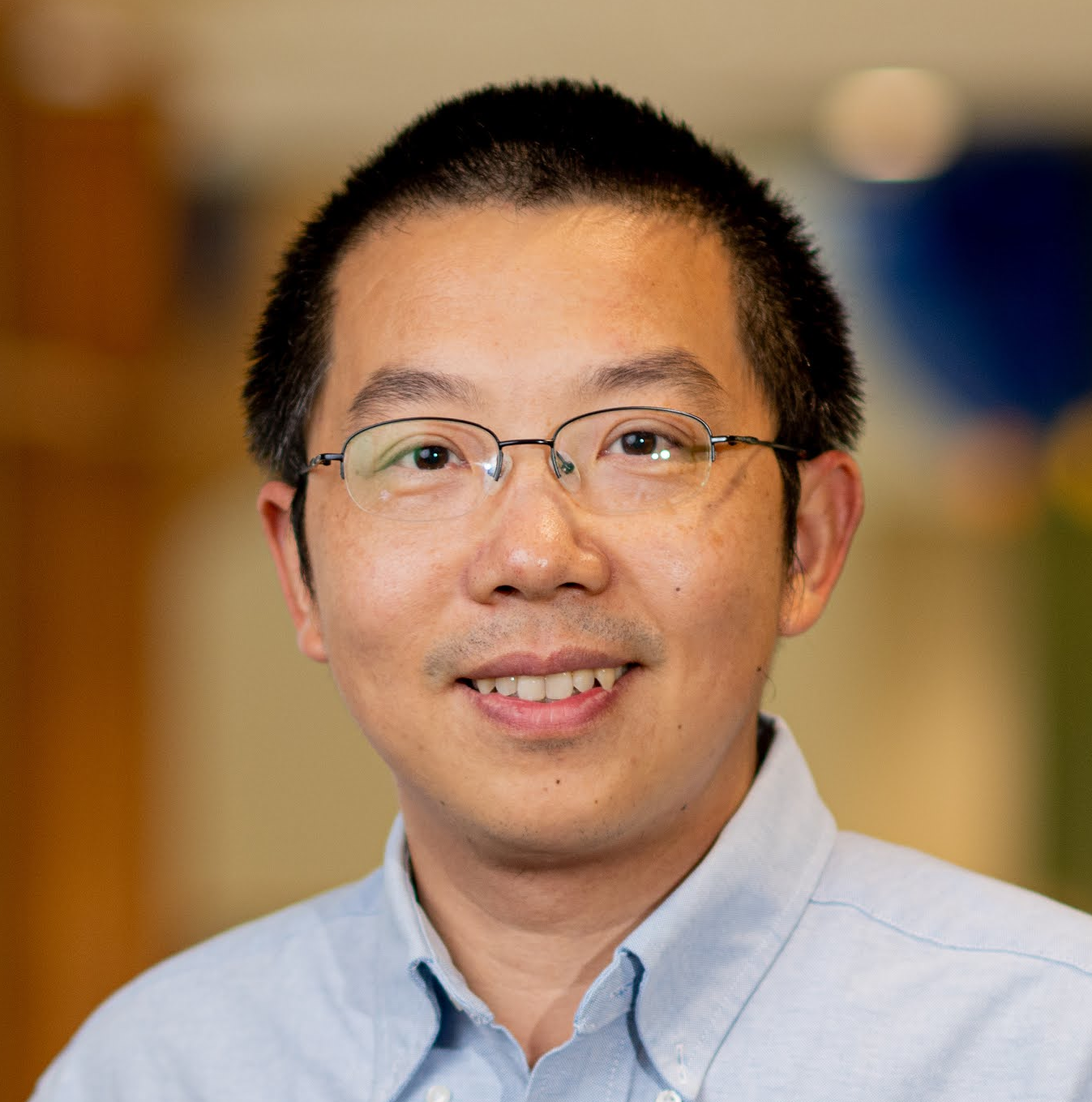
Statistical and computational methods for spatial transcriptomics
Beth Cimini, Ph.D.
Broad Institute
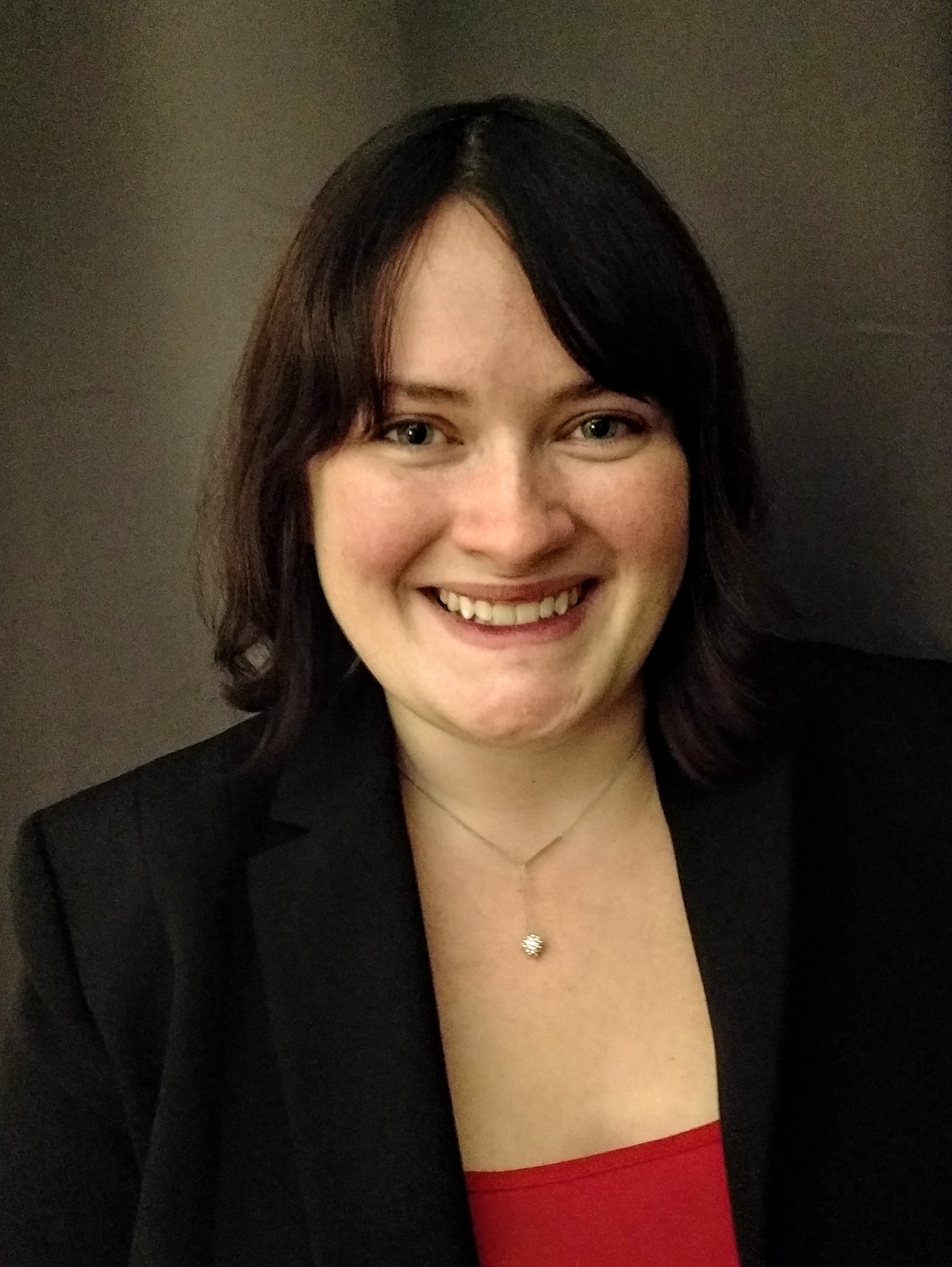
Making the most of your microscopy images with high content analysis
11:15 – 11:30 AM | Coffee Break
11:30 AM – 12:25 PM | Workshop Training Sessions I
Protein Structure Prediction: Bioinformatics tools in predicting protein structures
Van Andel Institute
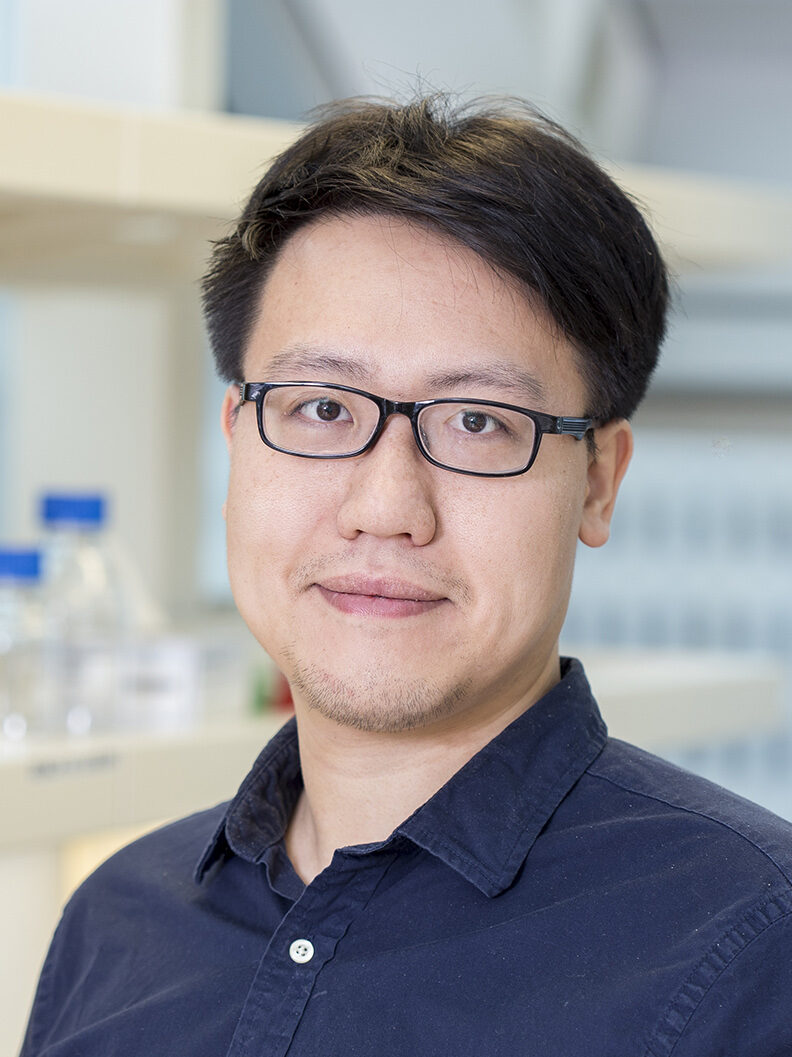
This workshop session focuses on providing an introduction and hands-on experience for computational tools used for protein structure prediction, analysis and illustration, including AlphaFold, Rosetta, Pymol and ChimeraX.
Microscopy Data Analysis: Image processing with ImageJ/Fiji and automated workflows
Laboratory for Optics and Computational Instrumentation (LOCI) & Morgridge Institute for Research
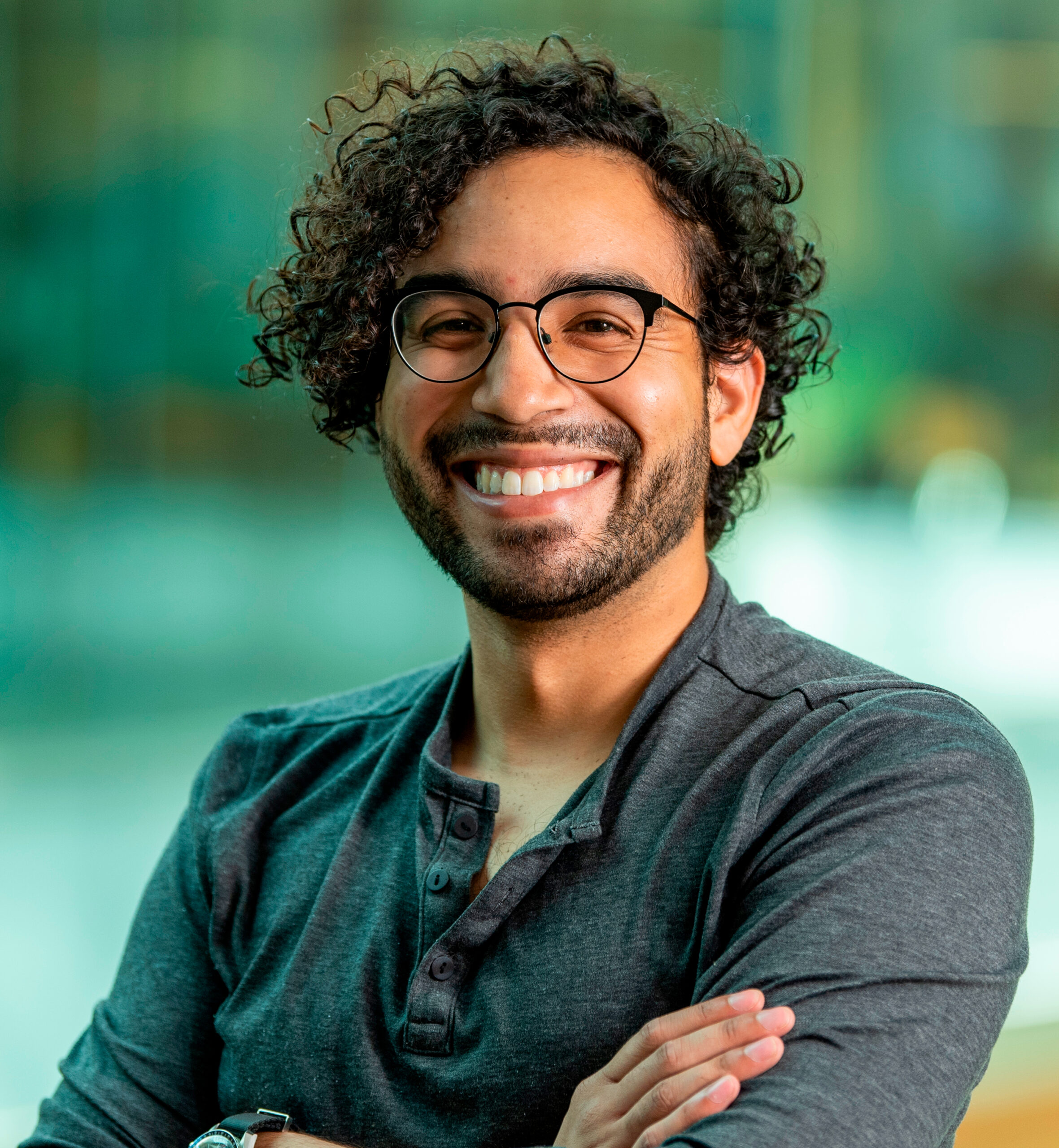
This workshop will cover digital images, the ImageJ/Fiji ecosystem, image processing techniques and automating image processing workflows.
Transcriptomic Data Analysis: Introduction to the CZ CELLxGENE Discover Suite
Chan Zuckerberg Initiative

This workshop session will provide an overview of the open source and freely available CZ CELLxGENE Discover Suite (https://cellxgene.cziscience.com/), which includes a free-to-use online data portal and a set of UI based visualization that enable in depth exploration of single-cell data. CELLxGENE’s data portal hosts a growing corpus of more than 700 single-cell datasets comprising more than 38 million unique cells. These data are standardly curated and are available for free download using either the Portal UI or programmatically via our API. Visualization tools include our Explorer (suitable for exploring individual datasets) and Gene Expression (for exploring patterns in gene expression at the corpus level).
12:25 – 12:35 PM | Coffee Break
12:35 – 1:30 PM | Workshop Training Sessions II
Protein Structure Prediction: Bioinformatics tools in predicting protein structures
Van Andel Institute

This workshop session focuses on providing an introduction and hands-on experience for computational tools used for protein structure prediction, analysis and illustration, including AlphaFold, Rosetta, Pymol and ChimeraX.
Microscopy Data Analysis: Image processing with ImageJ/Fiji and automated workflows
Laboratory for Optics and Computational Instrumentation (LOCI) & Morgridge Institute for Research

This workshop will cover digital images, the ImageJ/Fiji ecosystem, image processing techniques and automating image processing workflows.
Transcriptomic Data Analysis: Introduction to the CZ CELLxGENE Discover Suite
Chan Zuckerberg Initiative

This workshop session will provide an overview of the open source and freely available CZ CELLxGENE Discover Suite (https://cellxgene.cziscience.com/), which includes a free-to-use online data portal and a set of UI based visualization that enable in depth exploration of single-cell data. CELLxGENE’s data portal hosts a growing corpus of more than 700 single-cell datasets comprising more than 38 million unique cells. These data are standardly curated and are available for free download using either the Portal UI or programmatically via our API. Visualization tools include our Explorer (suitable for exploring individual datasets) and Gene Expression (for exploring patterns in gene expression at the corpus level).
1:30 – 2:30 PM | Lunch
2:30 – 3:25 PM | Workshop Training Sessions III
Protein Structure Prediction: Bioinformatics tools in predicting protein structures
Van Andel Institute

This workshop session focuses on providing an introduction and hands-on experience for computational tools used for protein structure prediction, analysis and illustration, including AlphaFold, Rosetta, Pymol and ChimeraX.
Microscopy Data Analysis: Image processing with ImageJ/Fiji and automated workflows
Laboratory for Optics and Computational Instrumentation (LOCI) & Morgridge Institute for Research

This workshop will cover digital images, the ImageJ/Fiji ecosystem, image processing techniques and automating image processing workflows.
Transcriptomic Data Analysis: Introduction to the CZ CELLxGENE Discover Suite
Chan Zuckerberg Initiative

This workshop session will provide an overview of the open source and freely available CZ CELLxGENE Discover Suite (https://cellxgene.cziscience.com/), which includes a free-to-use online data portal and a set of UI based visualization that enable in depth exploration of single-cell data. CELLxGENE’s data portal hosts a growing corpus of more than 700 single-cell datasets comprising more than 38 million unique cells. These data are standardly curated and are available for free download using either the Portal UI or programmatically via our API. Visualization tools include our Explorer (suitable for exploring individual datasets) and Gene Expression (for exploring patterns in gene expression at the corpus level).
3:25 – 3:35 PM | Coffee Break
3:35 – 4:30 PM | Workshop Training Sessions IV
Protein Structure Prediction: Bioinformatics tools in predicting protein structures
Van Andel Institute

This workshop session focuses on providing an introduction and hands-on experience for computational tools used for protein structure prediction, analysis and illustration, including AlphaFold, Rosetta, Pymol and ChimeraX.
Microscopy Data Analysis: Image processing with ImageJ/Fiji and automated workflows
Laboratory for Optics and Computational Instrumentation (LOCI) & Morgridge Institute for Research

This workshop will cover digital images, the ImageJ/Fiji ecosystem, image processing techniques and automating image processing workflows.
Transcriptomic Data Analysis: Introduction to the CZ CELLxGENE Discover Suite
Chan Zuckerberg Initiative

This workshop session will provide an overview of the open source and freely available CZ CELLxGENE Discover Suite (https://cellxgene.cziscience.com/), which includes a free-to-use online data portal and a set of UI based visualization that enable in depth exploration of single-cell data. CELLxGENE’s data portal hosts a growing corpus of more than 700 single-cell datasets comprising more than 38 million unique cells. These data are standardly curated and are available for free download using either the Portal UI or programmatically via our API. Visualization tools include our Explorer (suitable for exploring individual datasets) and Gene Expression (for exploring patterns in gene expression at the corpus level).
We provide financial assistance in the form of travel grants of up to $500 for trainees attending the Van Andel Institute Bioinformatics Workshop. To be eligible for a travel grant, an applicant must meet the following criteria:
- Be an undergraduate student, graduate student, postdoctoral fellow or research scientist at a U.S. institution.
- Attend the full-length workshop.
Financial assistance will be provided in a form of a registration fee waiver ($50) and travel reimbursement (up to $450). The deadline to apply is May 19, 2023.
Apply NowIs the event in-person or virtual?
This workshop is a hybrid format. You will be able to select virtual or in-person attendance during registration.
How do I become a sponsor?
Please contact Courtney Zirkle at [email protected] for more information on sponsorship opportunities.
What is the refund policy?
Refund requests must be made in writing by July 13, 2023. After July 13, refund requests will not be honored. If you are not able to attend, a substitute may attend in your place. The name and email address of the substitute must be emailed to Courtney Zirkle at [email protected] prior to July 13, 2023.
What should I bring to the workshop training sessions?
Please bring a laptop and charger. Extension cords will be provided by organizers.
Code of Conduct Guidelines
We are dedicated to providing a harassment-free, non-discriminatory symposium experience for all participants, regardless of race, color, national origin, religion, sex, age, disability, pregnancy, height, weight, marital status, veteran status, sexual orientation, gender identity, or other personal characteristics covered by applicable law. We will not tolerate harassment of conference participants in any form. We expect participants at our events to engage in constructive and professional discussions at all times. Harassment can include unwelcomed attention, inappropriate comments or jokes that refer to gender differences, sexual topics, requests for dates, or other sexual activities as well as the use of language that may demean or degrade individuals. These behaviors are not appropriate for any of our conference venues, including talks, workshops, networking sessions, poster sessions, social networking platforms, and other online media platforms. Any participant violating these guidelines will be removed from the symposium at the discretion of the conference organizers.
Anyone who has experienced the above, or who has witnessed such behavior, should notify Courtney Zirkle. Anonymous reporting may also be done through the EthicsPoint Hotline.
Van Andel Institute Graduate School Student
Lauren Harmon is a third-year graduate student in the laboratory of Dr. Tim Triche at Van Andel Institute. Her research is focused on understanding genetic predisposition to pediatric acute myeloid leukemia by analyzing genetic data and modeling DNA variants in zebrafish.
Van Andel Institute Graduate School Student
Vladimir Molchanov is a fourth-year graduate student in the laboratory of Dr. Tao Yang at Van Andel Institute. His research focuses on developing a targeted stem cell-based therapeutic technology for the treatment of osteoarthritis and other degenerative diseases.
Event Details
Thanks to our wonderful sponsors!
Keynote Sponsor
Scientific Sponsor
Supporting Sponsor
